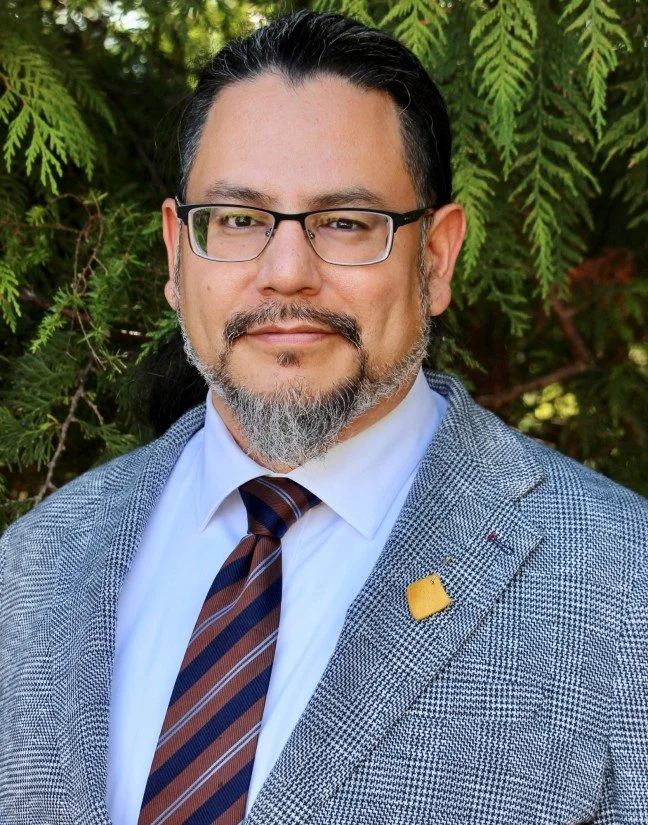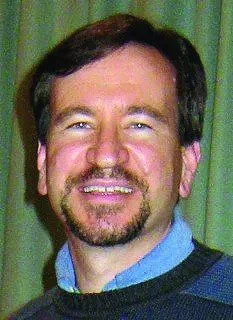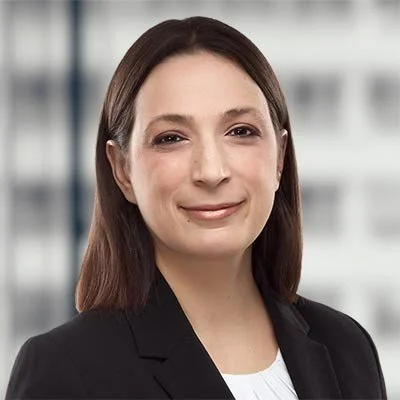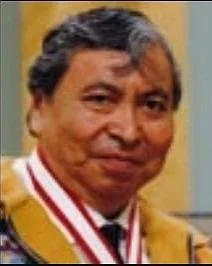
Modern Treaties and Indigenous Land Claims Agreements: Implementation
September 23, 2025 at 9:00AM PDT
Downtown Vancouver and Live Webinar
Modern Treaties and Indigenous Land Claims Agreements: Implementation
September 23, 2025
Overview
Treaties are central to the protection of Indigenous land, rights, culture and identity. These foundational constitutional agreements guide relationships and reconciliation between Indigenous peoples and Canadian governments.
Numerous Modern Treaties have been negotiated in Canada in recent decades. These Modern Treaties are now being implemented.
Successful treaty implementation requires collaboration, commitment, forethought, and preparation, from all parties involved. The process involves designing and establishing government interactions and their respective powers and responsibilities.
This forum examines the hard efforts of bringing the ideas and intentions during treaty negotiation to a practical reality for Indigenous communities.
How is Honour of the Crown reflected in treaty implementation?
What has worked? How has it worked?
Come and share, come and learn.
Our experienced faculty will discuss the successes, the challenges, and the changes needed to effectively implement treaties and advance reconciliation in Canada.
Key Areas Addressed:
Review of the important decisions affecting implementation of Modern Treaties and Indigenous Land Claim Agreements
How does a community implement self-government and pass laws?
Dealing with the tax and fiscal matters around treaty implementation
What protections are in place to provide enforcement of the treaty?
How can the BC Treaty Commission assist in the implementation of treaties?
The role of the Indigenous Land Claims Agreements Coalition and the Alliance of BC Modern Treaty Nations
Hear the government perspective in implementation of treaties
Successes and opportunities and economic benefits
Who Should Attend:
Aboriginal leaders, officials, councillors, elders, administrators, and advisors
Treaty negotiators and persons responsible for implementing treaties
Lawyers practising in the areas of Indigenous and Aboriginal law, resource development, real estate and business and administrative law
Owners, managers and representatives of resource development companies and companies operating on Crown land
Federal, provincial and municipal government officials and policy advisors
Consultants, accountants, financial planners, and others assisting Indigenous communities with financial matters and business operations
Agenda
9:00 - Welcome and Introduction by PBLI
9:05 - Chairs’ Welcome and Introduction
Murray Rankin, KC
Arvay Finlay, Victoria, BC, Former Minister of Indigenous Relations and Reconciliation, BC
Margaret Rosling
Counsel, Arvay Finlay, Vancouver, BC
9:10 - Keynote Address – Negotiating and Implementing a Modern Treaty
John Jack
Chief Councillor of Huu-ay-aht First Nations
9:40 - Questions and Discussion
9:50 - Analysis of Important Decisions on Implementation of Modern Treaties and Indigenous Land Claim Agreements
Micah Clark
Aldridge + Rosling, Vancouver, BC
Honour of the Crown
Other
10:20 - Questions and Discussion
10:30 - Refreshment Adjournment
Challenges of Implementation
10:45 - Self Government and Law Making
Dave Joe
OC, Barrister and Solicitor, Yukon
11:05 - Questions and Discussion
11:15 - Tax and Fiscal Matters
Michael Welters
Aldridge + Rosling, Vancouver, BC
11:35 - Questions and Discussion
11:45 - Enforcement Matters
Mark Stevenson
Mark L. Stevenson and Associates, BC
Key Elements of “Living Agreements”
Administration of Justice Chapter
Policing on Treaty Settlement Lands (TSL)
Nation “peace officers”
Enforcement laws on and off TSL
Creation of Nation Courts
12:15 - Questions and Discussion
12:30 - Networking Lunch
1:30 - The Role of the BC Treaty Commission
George Abbott
Commissioner of BC Treaty Commission
1:45 - Questions and Discussion
1:55 - The Role of the Indigenous Land Claims Agreements Coalition and Alliance of BC Modern Treaty Nations
Dillon Johnson
Tla’amin Nation, BC
Brianne Paulin
Aldridge + Rosling, Vancouver, BC
2:20 - Questions and Discussion
2:30 - Government Perspectives in Implementation of Modern Treaties
Carolyn Kamper
Assistant Deputy Minister, Negotiations and Regional Operations Division, Ministry of Indigenous Relations and Reconciliation
3:10 - Questions and Discussion
3:20 - Refreshment Adjournment
3:30 - The Recent Haida Rising Tide Agreement – Another Non-Treaty Approach
Murray Rankin, KC
Arvay Finlay, Victoria, BC, Former Minister of Indigenous Relations and Reconciliation, BC
3:55 - Questions and Discussion
4:05 - Successes and Opportunities – Faculty Roundtable
Moderators:
Murray Rankin, KC
Arvay Finlay, Victoria, BC, Former Minister of Indigenous Relations and Reconciliation, BC
Margaret Rosling
Counsel, Arvay Finlay, Vancouver, BC
The economic benefits
Optimism in communities
The challenges ahead
4:40 - Questions and Discussion
4:50 - Chairs’ Closing Remarks
5:00 - Forum Concludes
Meet the Co-Chairs
-
Arvay Finlay, Victoria, BC, Former Minister of Indigenous Relations and Reconciliation, BC
Murray Rankin, K.C. brings exceptional depth in environmental, indigenous, and information law, combined with distinguished publicservice experience. As a former Member of Parliament (Victoria, 2012-2019) and as British Columbia’s Minister of Indigenous Relations and Reconciliation (2020-2024), he has demonstrated unique expertise in complex negotiations and public policy development at both the federal and provincial levels. He was appointed by the Prime Minister as the first Chair of Canada’s National Security and Intelligence Review Agency.
Murray was a founding partner of Arvay Finlay, specializing in environmental and administrative law. He was also a partner in a national law firm between 2006 and 2011, before seeking elected office in the federal election the following year. He has appeared at all levels of court.
Before co-founding Arvay Finlay, Murray was a Professor of Law at the University of Victoria, where he primarily taught administrative law and environmental law. He remains a regional editor of the Canadian Journal of Administrative Law and Practice. He also served as Chief Treaty Negotiator in 1994, representing British Columbia in treaty negotiations across Vancouver Island and the Sunshine Coast.
Murray holds law degrees from the University of Toronto and Harvard Law School. His graduate work on freedom of information at Harvard led him to advocate for such legislation at the federal and provincial levels. He served as special advisor to the BC Attorney General, which led to the unanimous passage of the Freedom of Information and Protection of Privacy Act.
He has contributed to legislative reform at both the federal and provincial levels. While serving as Health critic for the Official Opposition, he was instrumental in achieving a unanimous parliamentary vote that resulted in the victims of thalidomide poisoning receiving lifetime annual benefits. Following the decision of the Court in Carter v. Canada, Murray was elected Vice-Chair of the Special Joint Committee on Physician-Assisted Dying, As Justice critic, he helped produce amendments to the Criminal Code that permitted medical assistance in dying under specified conditions. He was also appointed to the first National Security and Intelligence Committee of Parliamentarians and received the highest security clearance for this work.
Murray was elected to the British Columbia Legislature in 2020 and appointed Minister of Indigenous Relations and Reconciliation. He led the cross-government implementation of BC’s Declaration on the Rights of Indigenous Peoples Act, the first statute of its kind to be enacted in North America. He led the government in advancing various reconciliation agreements with multiple First Nations and oversaw significant progress in modern treaty negotiations and Treaty Land Entitlements in the Treaty 8 territory of Northeast British Columbia. In 2023, he shepherded passage of the Haida Nation Recognition Act, recognizing aboriginal title to land on Haida Gwaii. It established a historic consent-based decision-making process with the Haida Nation and formalized shared management of natural resources on Haida Gwaii. He also led efforts to create shared decision-making agreements with First Nation governments across British Columbia and worked to establish new revenue-sharing models for gaming, forestry, and mining as well as for Indigenous-led conservation initiatives.
-
Counsel, Arvay Finlay, Vancouver, BC
Margaret started her law career in 1987 as a litigation lawyer at Edwards, Kenny & Bray, a leading commercial law firm in Vancouver. In 1997, she was invited to join Tom Berger and Gary Nelson in practice at Berger & Nelson, a firm specializing in Aboriginal and human rights litigation. Margaret is a proud founding partner of Rosenbloom, Aldridge, Bartley and Rosling, later Aldridge and Rosling, where Tom continued to work as counsel for many years.
Originally focusing on litigation, Margaret represented Indigenous government clients in western and northern Canada in cases relating to Aboriginal and human rights before all levels of court. Most recently, Margaret and her colleagues successfully represented modern treaty nations and environmental organizations at the Supreme Court of Canada in a matter concerning the proper interpretation and implementation of a modern treaty.
Margaret has provided legal and strategic advice to Indigenous nations, non-governmental organizations, industry and public sector clients in western and northern Canada on all aspects of Aboriginal law, including matters related to treaty implementation, government relations, economic development, legislative, policy and conservation initiatives, governance, resource use and development, and environmental assessment and regulatory processes.
She has extensive experience leading complex commercial negotiations, including negotiating economic benefit agreements for major mining projects, gas pipeline and LNG developments, transmission line and hydroelectric projects. She has advised clients and negotiated agreements on matters relating to fiscal arrangements, economic development, child and family services, and infrastructure development initiatives.
Margaret believes reconciliation is best achieved through communication, respect and negotiation and, throughout her career has developed deep, respectful and enduring relationships with senior government and industry counterparties in order to advance this objective.
Margaret is proud to serve on the Boards of Spirit North, which empowers Indigenous youth through sport and play and serves over 10,000 youth nationwide, and BGC (formerly Boys and Girls Clubs) South Coast BC.
Keynote Speaker
-
Chief Councillor of Huu-ay-aht First Nations, Vancouver Island, BC
John Alan Jack is the elected Chief-Councillor for the Huu-ay-aht First Nations (HFN). His traditional name is Sayaač̓atḥ (sah-YAH-chut) and he has served in HFN government as a Member of Council since 2009 and he has been Chief-Councillor since 2023. HFN is a member-nation and signatory of the Maa-nulth Final Agreement, a modern treaty between five nations and the Crown governments that has been in effect since April 2011. He has been a director representing HFN for the Alberni-Clayoquot Regional District since 2012, and John has been Chairperson since December 2016. He has served six years as a member of the Board of Governors for Vancouver Island University, his alma mater, and currently serves as a member of the Board of Governors for North Island College. He has a keen interest in concepts of economic reconciliation, cooperation between businesses and government on important economic initiatives, and all forms of good governance. He lives in the Oceanside area of Vancouver Island with his patient wife, three boisterous children, and two small dogs.
Meet the Faculty
-
Aldridge + Rosling, Vancouver, BC
Micah’s practice has a dual focus on Indigenous/regulatory litigation and modern treaty implementation. He has been recognized in recent editions of the Canadian Legal Lexpert Directory as a leading practitioner in Aboriginal law.
As part of his litigation practice, Micah has appeared before various levels of courts across Canada, including successfully representing clients before the Supreme Court of Canada. He has also successfully represented clients in modern treaty dispute resolution processes and before various administrative tribunals, including the British Columbia Environmental Appeal Board.
Recent representative proceedings include:
Successfully representing a modern treaty nation in litigation concerning mining and land use planning, and the appropriate time to commence judicial review proceedings before the court: Yukon (Government of) v. YESAB, 2025 YKSC 14
Counsel for an Indigenous party succeeding in setting aside an injunction that precluded their purchase of lands within their traditional and modern treaty territory: British Columbia (Attorney General) v. Reece, 2023 BCCA 257
Successfully representing an Indigenous party to a modern treaty in a treaty arbitration process, establishing that the federal and territorial governments had breached their treaty obligations by taking a “narrow interpretational approach” that was “not generous”: In the Matter of an Arbitration pursuant to Article 38 of the Nunavut Agreement (Initial Decision – March 25, 2023)
Co-counsel for an Indigenous nation confirming the honour of the Crown’s application to accommodation agreements entered into in fulfillment of the Crown’s duty to consult: Manitoba Metis Federation Inc v Brian Pallister et al, 2021 MBCA 47
Successfully representing a modern treaty nation in litigation concerning the Crown’s duty to consult in situations where there may be conflicting duties owed to Indigenous groups with finalized treaty rights and those with overlapping assertions of rights: Gamlaxyeltxw v. British Columbia (Minister of Forests, Lands & Natural Resource Operations), 2020 BCCA 215, affirming in the result 2018 BCSC 440
Co-counsel for a Canadian corporation successfully appealing the issuance of numerous statutory orders and obtaining a significant tribunal costs award: Cherokee Canada Inc. et al. v. Director, Regional Compliance, Red Deer-North Saskatchewan Region, Operations Division, Alberta Environment and Parks, 2019 ABEAB 1 and 2020 ABEAB 10
Successfully representing multiple modern treaty nations and environmental organizations in litigation concerning the proper interpretation and implementation of the land use provisions of the Umbrella Final Agreement (Yukon), and the scope of judicial review proceedings concerning the implementation of modern treaties: First Nation of Nacho Nyak Dun v. Yukon, 2017 SCC 58
Co-counsel for an Indigenous nation successfully confirming the legal principles in respect of continuing trespass to reserve lands by flooding: Peter Ballantyne Cree Nation v. Canada (Attorney General), 2016 SKCA 124and 2017 SKCA 5
With respect to treaty implementation, Micah assists treaty governments with the development, drafting and implementation of legislation and government policies. He also provides ongoing advice to treaty governments on issues such as general governance, elections, and the delivery of government programs and services. Micah has appeared before the Senate Standing Committee on Aboriginal Peoples in respect of modern treaty implementation issues (Ottawa, ON, October 2018) and presented on treaty-related litigation issues at the Modern Treaties and Reconciliation, Land Claims Agreements Coalition Conference (Ottawa, ON, November 2017).
-
Commissioner of BC Treaty Commission
George Abbott is the Government of British Columbia appointed Commissioner. He is serving his first term as a Commissioner and was appointed in 2025.
George is a former Member of the Legislative Assembly of British Columbia and represented Shuswap for 17 years. During his time in office, he served in several cabinet positions, including Minister of Aboriginal Relations and Reconciliation; Minister of Community, Aboriginal and Women’s Services; Minister of Sustainable Resource Management; Minister of Health; and Minister of Education.
George has a Bachelor of Arts (Political Science and Government) from the University of British Columbia, and a Master of Arts (Political Science) and Doctor of Philosophy (Political Science and Government) from the University of Victoria. Currently, George is an adjunct professor in Political Science at the University of Victoria.
He is Chair of the board at Technical Safety BC, a Director on the Board of the Land Title and Survey Authority, and former Chair of the Board of the Institute for Health System Transformation and Sustainability.
Geroge is the author of Unceded: Understanding British Columbia’s Colonial Past and Why It Matters Now to be published in September 2025 by Purich Books/UBC Press.
George lives in Victoria with his wife Lesley and is a proud father of three and grandfather of seven.
-
Tla’amin Nation, BC
Dillon Johnson is a proud member of the Tla’amin (tla-ah-min) Nation, where he is serving his fourth term as an elected member of Executive Council. He is also the Chief Financial Officer for his Nation’s economic development arm, Tla’amin Management Services LP. Dillon proudly carries a Tla’amin name, toqʷanən (toh-kwon-non), which is the place name of a former village site of the Tla’amin people. Prior to the CFO role, Dillon provided community, economic and self-governing advice to other First Nations in Canada for 15 years as a consultant. He is an MBA graduate from the Richard Ivey School of Business and has a BCom from the University of Victoria. Dillon also holds the Certified Aboriginal Financial Manager (CAFM) designation from the Aboriginal Financial Officers Association of Canada, and he serves as the Vice-Chair of the First Nations Financial Management Board and is on the board for the First Nations Major Projects Coalition.
-
Assistant Deputy Minister, Negotiations and Regional Operations Division, Ministry of Indigenous Relations and Reconciliation
Carolyn Kamper is the Assistant Deputy Minister (ADM) of the Negotiations and Regional Operations Division for the BC Ministry of Indigenous Relations and Reconciliation. She was appointed to her current role in July 2023 after serving as an ADM in the Ministry of Children and Family Development for approximately seven years. During her 20-plus year career with the BC Public Service, Carolyn has held various roles in climate action, energy, health, advanced education, child welfare, employment programming, as well as the Office of the Premier and provided leadership on stakeholder engagement and business transformation across the social, health and resource sectors.
In addition to her professional experience in both the private and public sectors, Carolyn holds a master’s degree in public administration from the University of Victoria and a Bachelor of Commerce from Royal Roads University. She is grateful to live and work in the traditional territories of the Lkwungen speaking peoples (Victoria).
-
Aldridge + Rosling, Vancouver, BC
Brianne’s practice focuses on treaty implementation, consultation, resource and environmental governance and Indigenous/regulatory litigation.
In respect of treaty implementation, Brianne has broad experience advising modern treaty nations with the development, drafting and implementation of environmental governance frameworks, resource development strategies and legislation and policies in a variety of areas.
Brianne also has considerable experience advising clients on project development, including navigating regulatory regimes in several jurisdictions including Yukon, British Columbia, Ontario, Nunavut and Saskatchewan. In addition, Brianne has broad experience advising clients in commercial negotiations, including project and financing agreements, funding agreements and benefits agreements in the areas of mining and renewable energy.
-
Aldridge + Rosling, Vancouver, BC
Michael advises on taxes and inter-governmental fiscal relations.
Michael specializes in providing tax advice to the tax-exempt sector, including modern treaty nations, bands, municipalities, health authorities, school districts, charities and non-profit organizations. He provides those clients with advice on: obtaining or maintaining their income tax exempt status and structuring new activities; complying with and mitigating their commodity tax obligations (e.g., PST, GST, property transfer tax); and the application of, or exemption from, annual property taxes. Michael teaches aboriginal tax as an adjunct professor at UBC Faculty of Law.
With respect to the inter-governmental fiscal relations, Michael advises on the negotiation of tax coordination agreements between different levels of government and on the negotiation and application of fiscal financing and own source revenue agreements. His knowledge extends to equalization and territorial financing arrangements and provincial tax harmonization arrangements.
Michael has represented clients in a variety of tax disputes, both at the administrative and court appeal levels, with respect to a wide range of taxes, including income tax, carbon tax, PST, GST, EI and CPP, tobacco tax and property tax. He has also assisted clients who have outstanding tax obligations with making voluntary disclosures to tax authorities.
-
Mark L. Stevenson and Associates, BC
Mark is a Métis lawyer whose family originates from the historic Métis community of Lac St Anne, Alberta. He has a Masters of Law from the University of British Columbia, Bachelor of Law from McGill University, and Master of International Relations from Jawaharlal Nehru University in India. His deep spiritual beliefs come from his mother and the time spent in India.
Mark was the 2016 Indspire Award (formerly National Aboriginal Achievement Award) for Law and Justice. In 2009 Mark received the Indigenous Peoples’ Counsel (IPC) designation from the Indigenous Bar Association, which recognizes outstanding accomplishments achieved with honour and integrity.
Mark’s career began in 1982 at the Privy Council in Ottawa working on Indigenous constitutional matters. He then worked as Legal Counsel for the Ontario Native Affairs Secretariat from 1987 to 1991, and as a Chief Treaty Negotiator with the Government of British Columbia from 1991 to 1998, when he entered private practice to work with First Nations in the British Columbia Treaty Process.
In addition to his work in treaty negotiations, Mark has negotiated a wide variety of agreements on behalf of Indigenous People including Oil, Gas and Mineral Revenue Sharing Agreements, Pipeline Agreements, Forestry Agreements, and Impact Benefit Agreements linked with Hydro mega projects. He was also instrumental in the development of the First Nations Financial Management Act, the settlement legislation for the Tsawwassen Final Agreement.
Mark is a past President of the Indigenous Bar Association as well as the founding president of Aboriginal Legal Services of Toronto. Mark also served as a commissioner for the Law Commission of Canada, and is a board member of the Canadian Civil Liberties Association. Mark has published numerous articles on aboriginal law issues, and in particular on Métis Rights issues.
-
OC, Barrister and Solicitor, Yukon
Dave Joe is the Yukon’s first Indigenous lawyer, called to the Yukon Bar in 1977. He was involved in the land claim movement in Yukon prior to and after his call to the Bar. In 1973, he was involved when Yukon First Nations convinced then Prime Minister Pierre Trudeau and then Indian Affairs Minister Jean Chretien to negotiate a modern day treaty with Yukon First Nations. Joe was still involved 22 years later when the first four Yukon First Nations’ Final Agreements became part of the Canadian Constitution on February 14, 1995. Today, the recognition and implementation of aboriginal rights, titles and interests are still the main focus of his law practice in Yukon and British Columbia. Joe was named an Officer of the Order of Canada in 2008 “for his leadership in building stronger communities … and in negotiating final land claim agreements for several Yukon First Nations.” He was born in Klukshu, Yukon, and is of Southern Tutchone descent and is a Citizen of the Champagne and Aishihik First Nations.
Registration Form
Program:
Modern Treaties and Indigenous Land Claims Agreements: Implementation
Date:
September 23, 2025
Location:
UBC Robson Square (800 Robson Street - Classroom level), Vancouver, BC
Registration:
The registration fee is $890.00 plus GST of $44.50 totalling $934.50 for webinar and in-person attendance. Registration fee covers your attendance at the program and electronic materials. In-person attendance includes a catered lunch and refreshments throughout the day.
Early Bird Discount:
Register by August 25, 2025 and receive a $100 discount on the registration fee ($790.00 plus GST). Discounts cannot be combined.
Group Discount:
Register four persons from the same organization at the same time and you are entitled to a complimentary fifth registration. Discounts cannot be combined.
If you would like to register a group, please fill out this form and email it to registrations@pbli.com:
Payment:
You may pay by VISA, Mastercard or cheque. Cheques should be made payable to the Pacific Business & Law Institute and mailed to Unit 2-2246 Spruce Street, Vancouver, BC V6H 2P3. Please do not send cheques via courier with signature required.
When and Where:
Check-in begins at 8:30 a.m. The program starts at 9:00 a.m. (PDT). UBC Robson Square is located at 800 Robson Street in Vancouver, BC, and our event will take place on the classroom level. Please visit https://robsonsquare.ubc.ca/find-us/ for directions.
Materials:
The faculty will prepare papers and/or other materials explaining many of the points raised during this program. Materials will be distributed electronically. Please contact us at registrations@pbli.com if you are unable to attend the program and wish to purchase a set of materials.
Cancellations/Transfers:
Refunds will be given for cancellations (less a $60.00 administration fee) if notice is received in writing five full business days prior to the program (September 16, 2025). After that time we are unable to refund registration fees. Substitutions will be permitted. We reserve the right to cancel, change or revise the date, faculty, content, availability of webinar or venue and transfer in-person registration to webinar registration for this event.
To register by phone:
Telephone us: 604-730-2500
Your Privacy:
We will keep all information that you provide to us in strict confidence, other than to prepare a delegate list containing your name, title, firm and city for our faculty and the program delegates. We do not share our mailing lists with any non-affiliated organization.
Course Accreditation:
Attendance at this course can be listed for up to 6.5 hours of continuing professional development credits with the Law Society of BC. For practitioners in other jurisdictions, please check your governing body’s CPD requirements.
If you would like to register a group, please fill out this form (DOWNLOAD FORM) and email it to registrations@pbli.com (*This form is for registrations of 5 or more and cannot be combined with any other promotions/discount codes.)
For individual registration, please continue with form below.










